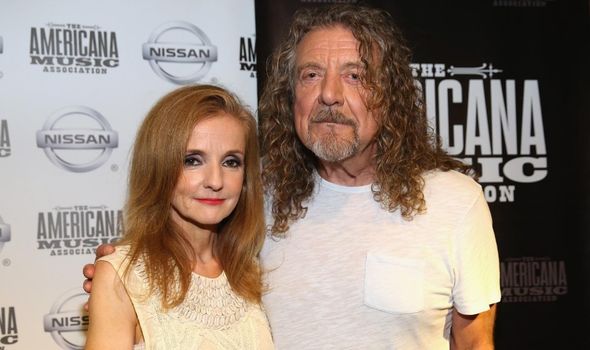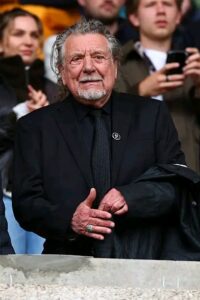
Robert Plant and Alison Krauss Cast a Spell at L.A.’s Greek Theatre
On a balmy Southern California evening, the Greek Theatre in Los Angeles transformed into a cathedral of sound as Robert Plant and Alison Krauss delivered a performance that was equal parts mystic séance and masterclass in genre fusion. Backed by a world-class band and bolstered by a stage presence that was at once regal and intimate, the duo wove together blues, folk, Americana, and reimagined rock with the kind of seamless chemistry that only deep mutual respect and artistic trust can produce.

The evening was charged from the start. Stepping onto a stage bathed in soft amber light, Plant and Krauss opened with “Rich Woman,” setting a sultry, hypnotic tone that lingered throughout the night. Their vocals, layered in spectral harmony, felt like echoes from another era—both timeless and freshly urgent. The haunting quality of Krauss’s ethereal soprano melded uncannily well with Plant’s gravel-edged tenor, an unlikely pairing that continues to prove itself one of modern music’s most captivating collaborations.
The setlist traversed the rich tapestry of their shared discography, including standout selections from their Grammy-winning debut Raising Sand and its long-awaited follow-up Raise the Roof. Songs like “Please Read the Letter” and “Can’t Let Go” were rendered with aching beauty, their arrangements stripped just enough to let the voices shine while still brimming with sonic texture. The band, anchored by the phenomenal JD McPherson on guitar, Jay Bellerose on drums, and Dennis Crouch on upright bass, was tight yet fluid, exuding a raw, organic energy that gave each song a sense of immediacy.
But the real showstoppers of the night were the duo’s bold reimaginings of classic Led Zeppelin tracks. “When the Levee Breaks” unfurled like a thunderstorm, with McPherson’s slide guitar and Bellerose’s primal drumming evoking the Mississippi Delta by way of Valhalla. It was less a cover than a full-bodied resurrection—swampy, apocalyptic, and utterly spellbinding. Likewise, “The Battle of Evermore” retained its Celtic mystique while gaining new emotional depth through Krauss’s haunting delivery, turning the classic into a transcendent duet between light and shadow.
The crowd, a multigenerational mosaic of Zeppelin loyalists, bluegrass aficionados, and curious newcomers, was rapt throughout. Plant, ever the enigmatic frontman, moved with a weathered grace, his between-song banter both wry and affectionate. Krauss, demure yet commanding, let her voice do the heavy lifting, especially during solo moments like “Down to the River to Pray,” which drew hushed reverence from the crowd.
There was an undeniable sense of communion in the air—not just between the performers and the audience, but between genres, histories, and moods. Where lesser artists might falter under the weight of legacy, Plant and Krauss seemed liberated by it, using it as a canvas on which to paint something entirely new yet achingly familiar.
By the time the encore rolled around, including a luminous version of “Gone Gone Gone (Done Moved On),” the audience had been taken on a journey that transcended time and category. It wasn’t just a concert—it was a spiritual convergence, a moment suspended between the past and the present, between the earthly and the divine.
As the final notes rang out beneath the Hollywood Hills, one thing was clear: in the hands of Robert Plant and Alison Krauss, music is not just heard—it’s felt, lived, and forever transformed.